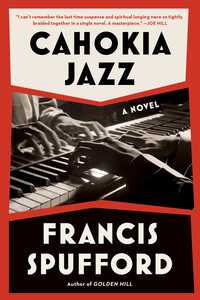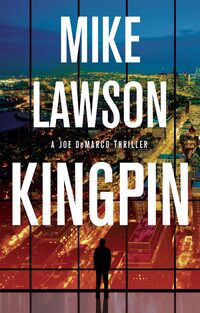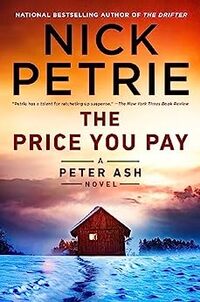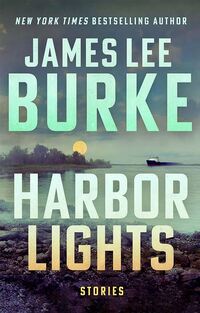Cahokia Jazz by Francis Spufford
 Thursday, February 8, 2024 at 7:26AM
Thursday, February 8, 2024 at 7:26AM 
First published in Great Britain in 2023; published by Scribner on February 6, 2024
Police detectives in the city of Cahokia work to solve a murder in Cahokia Jazz. Wikipedia, the repository of all knowledge, tells me that Cahokia, located across the Mississippi from the current site of St. Louis, was the first significant settlement in North America. The remaining mounds have been designated as an historic site. The city existed from 1050 to 1350, but the novel imagines that in 1922, it is a modern city populated by three segregated racial groups. The US is at war with Russia in the territory now known as Alaska. Against that background, Cahokia Jazz might best be described as a crime novel with literary aspirations set in the context of an alternate history.
In the eyes of some, the city founded by Aztec royalty is still ruled by Aztec royalty, although the native residents — Aztec by legend more than ancestry — were largely converted to Catholicism by a Jesuit priest. Native beliefs nevertheless shape policy. Private ownership of land is forbidden in Cahokia; land belongs to everyone. The Land Trust manages long-term leases of land to its tenants. Water and electricity are shared in the same way.
Frederick Hopper’s bloodied corpse is found on the rooftop of the Land Trust building. Hopper is a takata — a person of European ancestry. The two other prominent ethnic groups in Cahokia are takouma — with ancestry that is native to the continent, and taklousa — a person of African ancestry. A takouma word, written in blood on Hopper’s forehead, might be translated as a call for independence.
Two detectives are assigned to the case. Joe Barrow is a mix of takouma and taklousa. Phineas Drummond is takata. Hopper’s wife, representing the views of many takata, regards Barrow as a savage and will only speak to Drummond. Hopper was in the Klan, a popular organization in his home state of Ohio, before he moved to Cahokia. By the novel’s midpoint, the Klan will be leading an insurrection.
The story explains Barrow’s connection to Drummond, first as wounded soldiers who met in a hospital, then as partners in law enforcement. Barrow isn’t quite sure how he feels about Drummond. He appreciates Drummond’s willingness to see him as an equal (an unusual trait among the takata) but doesn’t admire the man’s personal qualities. Drummond is being paid off by bootleggers and has a taste for hookers. Thanks to his connections, Drummond has developed an addiction to amphetamines, well before amphetamines will be marketed by pharmaceutical companies. By the novel’s midway point, it appears that Drummond has fully betrayed his already shaky allegiance to law and order. He certainly doesn’t seem keen on solving Hopper’s murder.
A journalist brings Barrow to the attention of the Man of the Sun, a leader in the Aztec tradition. Barrow describes the Man as “the lord high wizard to the takouma” but he seems pretty much like every other religious/political leader. The Man refers to Barrow as “Thrown-Away Boy,” a phrase from an Aztec myth that is uncomfortably descriptive of Barrow’s childhood.
The Man’s niece, Couma Hashi, presides over the House of the Moon. Barrow meets Couma in the course of his investigation and is quite taken with her, although he realizes she is out of his league. Barrow will eventually find himself in a shootout, protecting Couma from political assassins.
The word painted on Hopper’s head is popular with the Warriors, a group that uses graffiti to support Aztec independence. Barrow’s prime suspect soon becomes a Warrior who believes in the Aztec tradition of blood sacrifice, although the modern version of the sacrifice is performed on rats. On the other hand, as a takouma suggests to Barrow, Hopper’s murder might be an “attempt to whip up takata against takouma.” Barrow will wonder whether that might be the case when he is literally caught between two angry racial groups as they march toward each other.
Cahokia Jazz is a story of death and sacrifice, politics and power, but it also tells the story of Barrow’s personal journey as he struggles to give a meaningful shape to his life. Elements of an action novel keep the story moving, but a subplot of unrequited love adds depth to Barrow’s character. His love is about as realistic as my dream of being Sandra Bullock’s boyfriend, but sometimes dreams come true. Will Barrow’s love be his downfall?
Much of the novel’s tension comes from the alternate futures that Barrow can imagine for himself and the uncertainty of the choice he will make. He becomes something of a hero before the novel ends, but events tempt him to abandon law enforcement and pursue his true love — playing piano in a jazz band. The jazz performance scenes capture the creative magic of musicians at work.
I admire the research and creative reflection on “what might have been” that animates Cahokia Jazz. World-building can be essential to the credibility of speculative fiction. Francis Spufford’s city-building is masterful. Drummond knows every speakeasy and house of ill repute; Barrow knows the jazz clubs. The novel’s political background has the racially pure FBI chasing everyone suspected of being a communist sympathizer, which of course includes union organizers. Loan sharks are among the mobsters who add to the 1920s vibe.
Cahokia Jazz is an ambitious novel. To realize its ambitions, the lengthy story lags as its various elements catch up with each other. Still, Spufford always maintained my interest in the story’s multiple threads. While Cahokia Jazz has obvious parallels to modern America’s racial and political division, the novel blends politics with action and mystery. The story’s ending forces Barrow to make a difficult choice, one that involves sacrifice and the death of a friendship. The novel ultimately succeeds because of Barrow’s complicated story, the kind of story that is simultaneously sad, heartwarming, and inspirational.
RECOMMENDED



